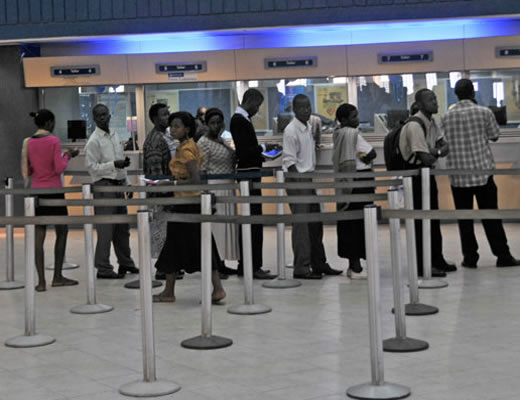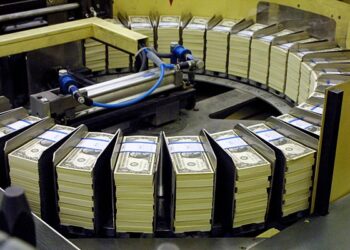Nigeria’s mortgage lenders are buckling under the weight of unpaid loans as job losses and inflation near a record high hinder the ability of customers to pay off their debts.
“They are just struggling to survive,” Adeniyi Akinlusi, president of the Mortgage Banking Association of Nigeria, said in an interview in Lagos, the commercial capital. “A lot of them aren’t making money.”
While the association said it isn’t aware of any mortgage lenders on the verge of collapsing, increased pressure on the nation’s 36 home-loan providers presents another challenge to President Muhammadu Buhari, whose administration is grappling with how to reverse the first contraction in gross domestic product in 25 years. Rising costs for everything from building materials to school fees has meant the industry has been stagnant since June, Akinlusi said.
At least 55 percent of the mortgage industry’s 94 billion naira ($300 million) of loans are classified as non-performing, Nigeria Deposit Insurance Corp., an Abuja-based regulator, said last month. That compares with a ratio of 10 percent for the 18.5 trillion naira of loans granted by the country’s banks and 45 percent for micro-lenders, which have 195 billion naira of outstanding loans.
“The real-estate market mirrors the larger economy,” said Udo Okonjo, chief executive officer of Lagos-based real estate broker Fine & Country West Africa. “Over the last year-and-a-half, the recession affected key sectors such as oil and gas, financial and manufacturing. There were a lot of layoffs.”
Assets Soar
Nigeria’s official unemployment rate jumped to the highest level in at least seven years in the third quarter of last year. While inflation in February slowed from a record a month earlier, at 17.8 percent, it is still almost double the central bank’s target. Total assets in the mortgage industry surged to more than 386 billion naira at the end of June, compared with 102 billion naira a year earlier. Nigerian regulators require mortgage lenders to have at least half their total assets in home loans.
In South Africa, the continent’s most industrialized economy, mortgages account for about 60 percent of total assets in the banking industry, which had total loans of 3.7 trillion rand ($284 billion) at the end of August, according to central bank data.
There are efforts to return the industry to growth as the government pledges to boost housing through the creation of a fund of as much as 1 trillion naira, which will offer up to 20-year loans to developers at interest rates of 9.9 percent. The state-owned Federal Mortgage Bank is also giving mortgage providers loans of up to 20 years, which will relieve operators of the burden of having to seek long-term funding, according to Akinlusi.
The association is also working with the Central Bank of Nigeria to develop rules for non-interest mortgage financing as it seeks to deepen penetration and boost participation by Muslims, who account for about half of Nigeria’s 180 million people, he said.
The regulator is expected to draft rules this year that will enable mortgage companies to provide loans to workers in the informal sector, including farmers, who don’t earn enough to make an initial down-payment for the debt, Akinlusi said.
The mortgage industry has taken steps to avoid further fallout from the economy’s woes by partnering with insurers to provide compulsory policies that protect home-loan providers, the association’s Akinlusi said. The policies pay the interest on mortgages for six months should a customer die or become disabled.
“We have begun to see very early signs of a cautious recovery,” said Fine & Country’s Okonjo. “Cautious because it has to be sustained to be referred to as recovery. If the inflation rate continues to drop, if the naira stabilizes, and the ambiguity and uncertainties are removed from the environment, once these factors are in place, then we are pretty confident that towards the third, fourth quarter of 2017, we should definitely begin to see actual recovery.”












